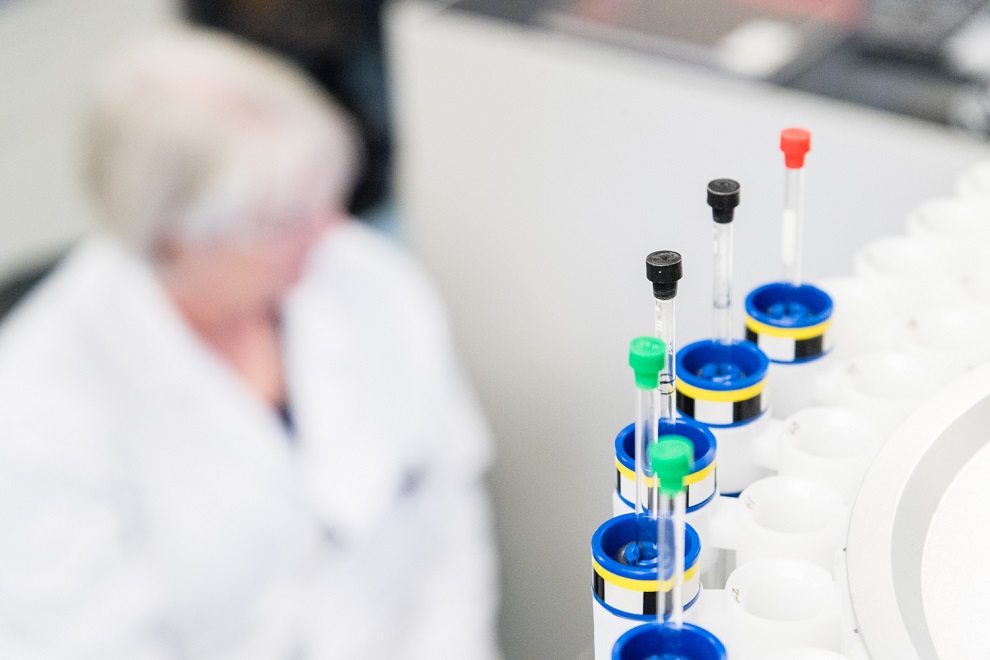What is MND
Find support
I have MND
I am supporting someone
Get involved
Research
About MND Scotland

The new research studies will attempt to ‘decode’ protein signals in MND and develop our understanding of mental capacity in MND patients. The studies will be based in Nottingham and Edinburgh, respectively.
New ways of remotely monitoring the health of motor neurons

These vesicles can be thought of as “little parcels” that contain information about the neurons from which they were released. When they get to their destination the contents of the parcels can have major effects on other cells.
It is believed that in motor neurone disease (MND) something goes wrong with the release of these extracellular vesicles from neurons and so ‘incorrect signals’ are sent, that then cause other cells to stop working correctly. To investigate this idea, Professor Layfield and the team will purify extracellular vesicles released by human motor neurons grown in the lab and for the first time identify the ‘protein signals’ contained within them, under healthy and MND-like conditions.
As extracellular vesicles contain valuable information about the cells that release them, by finding new ways to ‘decode’ and understand the protein signals they contain, the researchers hope in the future to be able to remotely monitor the health of motor neurons, for example from a simple blood test. This novel approach could lead to improved diagnosis, disease monitoring and assessment of responses to existing treatments for MND patients. Further, by understanding the biological processes that are going wrong in neurons the research team believes we will be in a stronger position to think about developing new treatments.
Professor Layfield said: “The Nottingham team is absolutely delighted to be awarded this funding from MND Scotland which will make a huge difference to our ongoing research. We want those affected by MND, both directly and indirectly, to know that we are with them and that we will continue to strive to do all we can to understand the condition, towards the common goal of finding new treatments. Our sincere thanks.”
Mental capacity to make treatment decisions in people with MND

It is believed that, in addition to problems with movement, half of people with MND have some degree of change in their thinking and behaviour. This may involve difficulties with organising themselves, solving problems, finding words, spelling, paying attention, and difficulties when having to interact with other people. These problems are associated with damage to specific parts of the brain, particularly the frontal lobes.
In this study, Professor Abrahams and her team will interview 60 people with MND to determine whether they can make decisions about specific treatments and their care. This might include decisions over whether to get a feeding tube to help with eating, or to receive ventilation to help with breathing. They will also look at types of support that can be given to help people in the decision-making process, such as giving information in a simple, straight-forward way.
Ultimately, the results will provide the basis for future guidelines for clinicians, people with MND and their families.
Professor Abrahams said: “Planning and decision-making are important for all people and particularly if you have been diagnosed with MND. This study will investigate if some people with MND have difficulties in making decisions for themselves, known as mental capacity, specifically about their own medical treatment.
“We will look at why they may have these difficulties and if there are ways we can support them through this decision making process. We thank MND Scotland and all their supporters for funding this project.”
Craig Stockton, Chief Executive of MND Scotland, said: “I am delighted to announce this new funding to support the work of Professor Layfield and Professor Abrahams.
“MND Scotland exists to take us a step close to a cure for motor neurone disease and, in the meantime, ensure that people living with MND receive the best care and support. Both of these new research projects promise to develop our understanding of what happens in MND and I am looking forward to working with Professor Layfield and Professor Abrahams to answer some of these questions.
“We’re building a movement to fight back against MND in Scotland and I’m so grateful to our fundraisers who continue to go above and beyond during this difficult time to support the work of the charity.”
Sign up
for newsletter
Get the latest news and events straight to your inbox.
You can help create a world without MND